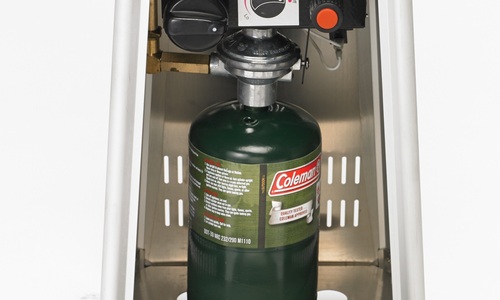5 minute read
|
Heating your home is a crucial decision, especially in regions with harsh winters. Choosing between gas and electric heating systems can significantly impact your comfort, budget, and energy usage. Let’s take a closer look at the differences between these two popular options. There are two main types of electric heaters: Radiation heaters – These use infrared heat to warm objects directly rather than the air around them. They're ideal for spot heating and are commonly used in garages or patios. However, they may not be suitable for large rooms as they don't distribute heat evenly. Convection heaters – These work by warming the air and circulating it through the room. They’re great for maintaining consistent temperatures in enclosed spaces. Ceramic and oil-filled convection heaters are popular choices for their efficiency and safety. Both types have their advantages, depending on your needs and space size. Gas heating comes in two main forms: Flued heaters – These require proper ventilation and must be installed by a professional. They are typically used in larger homes and are more efficient for whole-house heating. Non-flued heaters – Also known as vent-free or flueless heaters, these are designed to burn cleanly without needing a chimney or vent. They are convenient for smaller spaces but should only be used in well-ventilated areas. Gas heating systems require professional installation due to the need for vents and ductwork. This makes them more complex and costly upfront. On the other hand, electric heaters are usually portable and easier to install, though wall-mounted models may still need some setup. Gas heaters often have lower operating costs because natural gas is generally cheaper than electricity. However, the initial installation cost for gas systems is higher. Electric heaters are more affordable to install, making them a good choice for small spaces or temporary use. Gas heaters tend to produce more heat per unit of fuel, making them more efficient for larger areas. Electric heaters, while less powerful, are more cost-effective when used in small rooms or for short periods. It's important to consider both initial and long-term expenses when choosing a system. Electric heaters are generally safer to use, especially in homes with children or pets. Gas heaters require regular maintenance to ensure safe operation and prevent carbon monoxide leaks. Always follow manufacturer guidelines and install detectors if using gas appliances. Note: Heating systems can dry out the air, which may worsen conditions like dry skin or eczema. Using a humidifier alongside your heater can help maintain a healthier indoor environment. The choice between gas and electric heating often depends on where you live. In colder regions like the Northeast, gas heating is more common due to its efficiency and ability to handle large spaces. In milder climates, electric heating may be preferred for its simplicity and lower maintenance. If you're looking for a personal heating solution, radiant heaters are a smart choice. They provide quick, focused warmth and are ideal for small areas. Gas heaters, while slower to warm up, are better suited for long-term heating of larger spaces. Electric space heaters are perfect for targeted heating and are easy to move around. Both systems have their pros and cons. Convection and radiant heating are most effective when used in smaller, personal spaces rather than for whole-house heating. Space heaters are energy-efficient and can save you money over time, especially when used wisely. Gas heating is typically better for larger homes or families that need consistent warmth. Electric heating is ideal for apartments or homes without proper venting. If you're unsure, consider consulting a professional to determine the best option for your specific needs. Want more information? Have a question? Contact us today, and we will be happy to help! Sawing Rope 3.8mm,Sintered Wire For Construction,Wire Saw Rope 7x7-3.8mm,Electroplated Diamond Wire Saw Rope Jiangyin Yunfeng Steel Wire Rope Products Co.,Ltd. , https://www.wireropegym.comGas vs. Electric Heating: Which is Better for Your Home?

Understanding HVAC and Home Heating Systems
Types of Gas Heaters
Installation Considerations
Cost Comparison
Operating Costs and Efficiency
Safety and Maintenance
Popularity and Climate Influence
Gas vs. Electric Heaters: Which One Fits You?
Suitability for Different Living Situations
Go Back To Blog